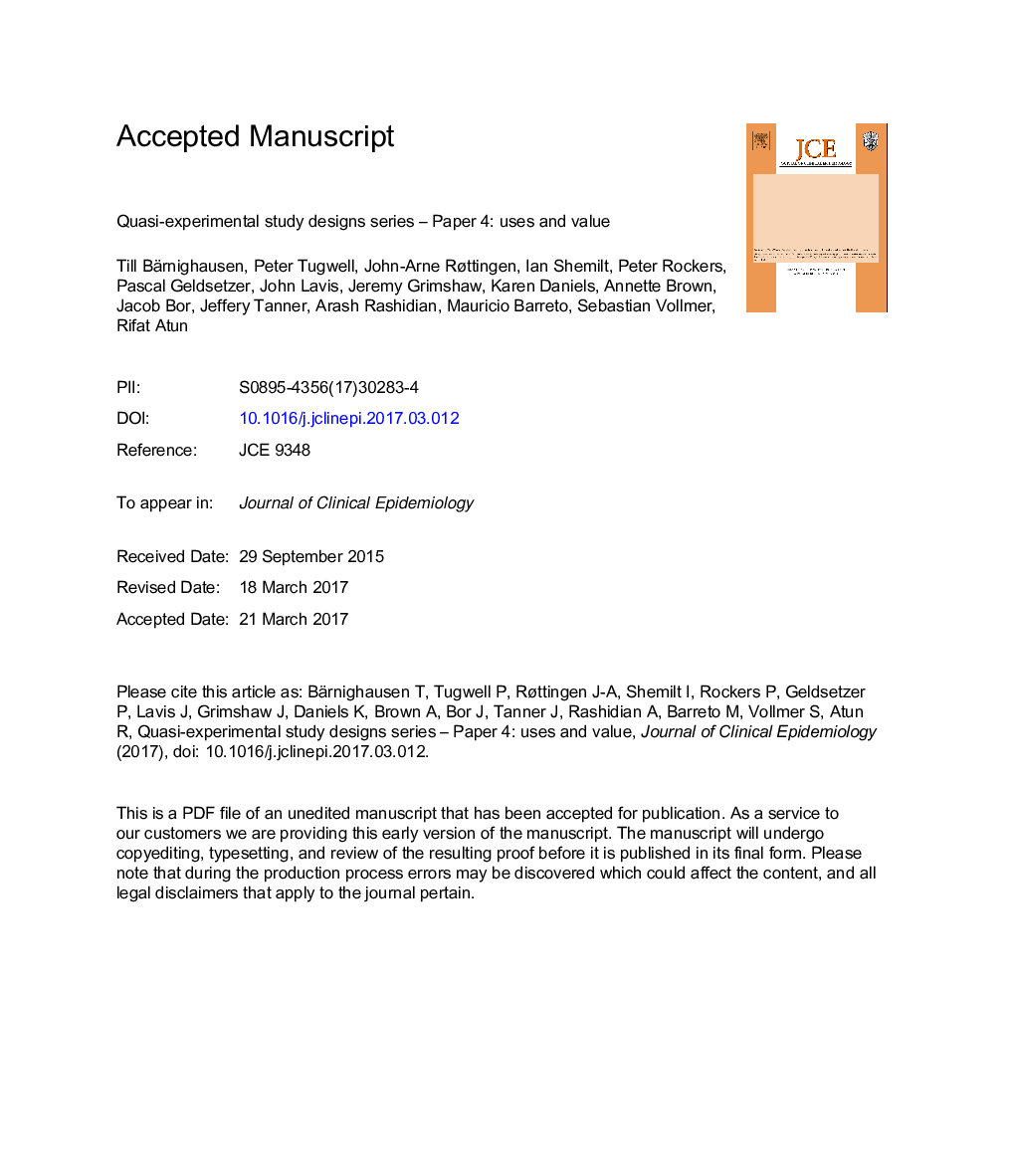| Article ID | Journal | Published Year | Pages | File Type |
|---|---|---|---|---|
| 7519478 | Journal of Clinical Epidemiology | 2017 | 18 Pages |
Abstract
Quasi-experimental studies are increasingly used to establish causal relationships in epidemiology and health systems research. Quasi-experimental studies offer important opportunities to increase and improve evidence on causal effects: (1) they can generate causal evidence when randomized controlled trials are impossible; (2) they typically generate causal evidence with a high degree of external validity; (3) they avoid the threats to internal validity that arise when participants in nonblinded experiments change their behavior in response to the experimental assignment to either intervention or control arm (such as compensatory rivalry or resentful demoralization); (4) they are often well suited to generate causal evidence on long-term health outcomes of an intervention, as well as nonhealth outcomes such as economic and social consequences; and (5) they can often generate evidence faster and at lower cost than experiments and other intervention studies.
Related Topics
Health Sciences
Medicine and Dentistry
Public Health and Health Policy
Authors
Till Bärnighausen, Peter Tugwell, John-Arne Røttingen, Ian Shemilt, Peter Rockers, Pascal Geldsetzer, John Lavis, Jeremy Grimshaw, Karen Daniels, Annette Brown, Jacob Bor, Jeffery Tanner, Arash Rashidian, Mauricio Barreto, Sebastian Vollmer,
